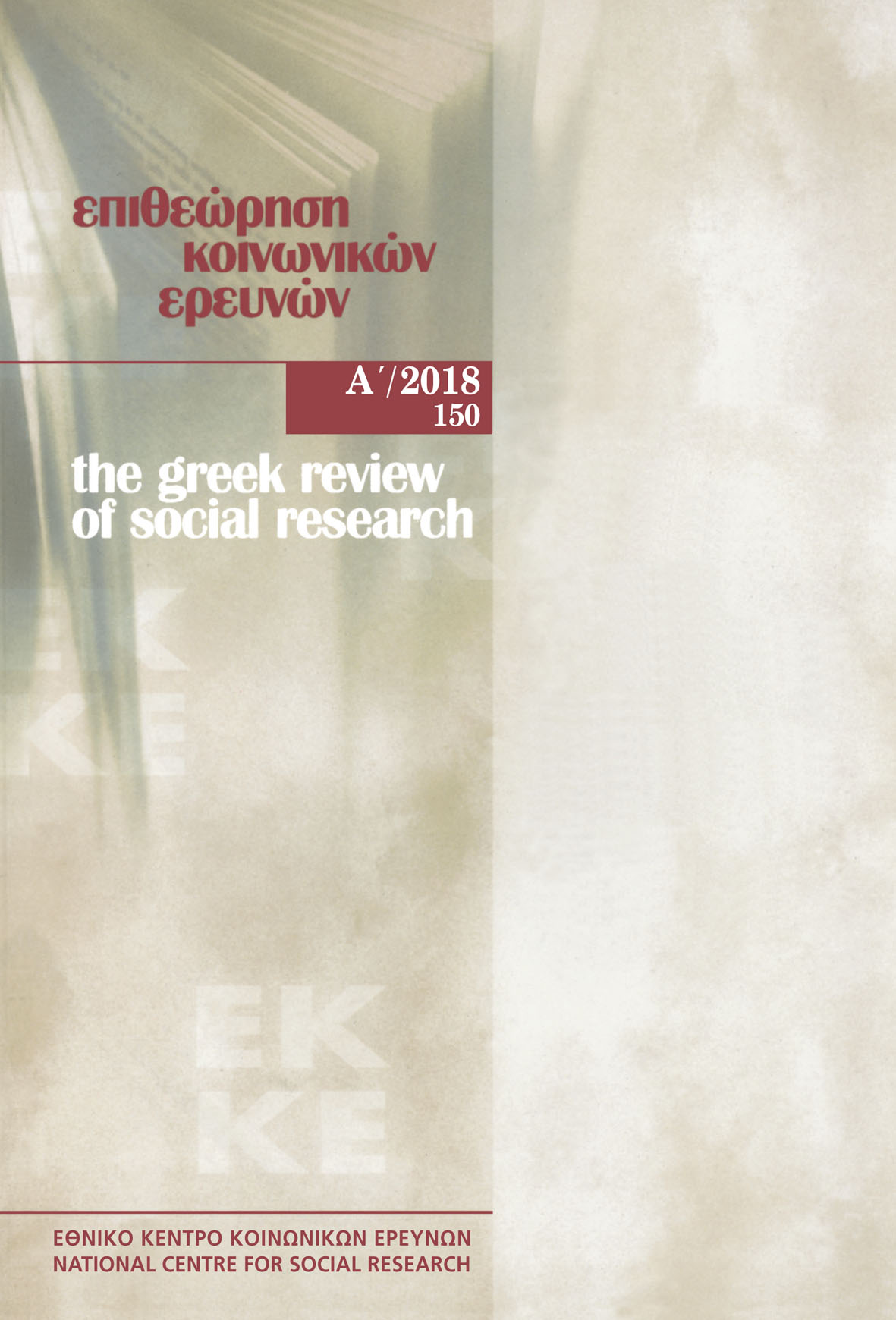Κριτικές προσεγγίσεις στον πολιτικό λόγο της κρίσης: Παραδείγματα από το πρωθυπουργικό διάγγελμα πριν το ελληνικό δημοψήφισμα

Περίληψη
Αξιοποιώντας το πλαίσιο της Κριτικής Ανάλυσης Λόγου και ακολουθώντας την αρχή της αλληλεπίδρασης μεταξύ του μακρο-επιπέδου και του μικρο-επιπέδου, το παρόν άρθρο μελετά της γλωσσικές αναπαραστάσεις της ομάδας «εμείς» στο διάγγελμα του πρωθυπουργού, Αλέξη Τσίπρα, κατά την ανακοίνωση του δημοψηφίσματος του 2015. Στη θεωρητική συζήτηση, κεντρικό ρόλο λαμβάνει η έννοια του φαντασιακού. Το προς ανάλυση υλικό προέρχεται από την επίσημη ηλεκτρονική σελίδα του Πρωθυπουργού. Εστιάζοντας στο μικρο-επίπεδο, αξιοποιούμε το πλαίσιο της συστημικής-λειτουργικής γλωσσολογίας και εφαρμόζουμε μια ανάλυση δομών μεταβιβαστικότητας σε αποσπάσματα του διαγγέλματος.
Λεπτομέρειες άρθρου
- Πώς να δημιουργήσετε Αναφορές
-
Σεραφής Δ. (2018). Κριτικές προσεγγίσεις στον πολιτικό λόγο της κρίσης: Παραδείγματα από το πρωθυπουργικό διάγγελμα πριν το ελληνικό δημοψήφισμα. Επιθεώρηση Κοινωνικών Ερευνών, 150, 77–110. https://doi.org/10.12681/grsr.17947
- Τεύχος
- 2018: 150
- Ενότητα
- Άρθρα

Αυτή η εργασία είναι αδειοδοτημένη υπό το CC Αναφορά Δημιουργού – Μη Εμπορική Χρήση 4.0.
Οι συγγραφείς των άρθρων που δημοσιεύονται στην Επιθεώρηση Κοινωνικών Ερευνών διατηρούν τα δικαιώματα πνευματικής ιδιοκτησίας επί των άρθρων τους, δίνοντας στο περιοδικό το δικαίωμα της πρώτης δημοσίευσης. Άρθρα που δημοσιεύονται στην Επιθεώρηση Κοινωνικών Ερευνών διατίθενται με άδεια Creative Commons 4.0 και σύμφωνα με την άδεια μπορούν να χρησιμοποιούνται ελεύθερα, με αναφορά στο/στη συγγραφέα και στην πρώτη δημοσίευση για μη κερδοσκοπικούς σκοπούς.
Το Εθνικό Κέντρο Κοινωνικών Ερευνών διατηρεί το δικαίωμα να δημοσιεύει, να αναπαραγάγει, να παρουσιάζει στο κοινό, να διανέμει και χρησιμοποιεί άρθρα που δημοσιεύονται στην Επιθεώρηση Κοινωνικών Ερευνών σε οποιοδήποτε μέσο και μορφή είτε μεμονωμένα είτε ως μέρη συλλογικών έργων, για όλο τον χρόνο διάρκειας προστασίας της πνευματικής ιδιοκτησίας και για όλες τις χώρες του κόσμου. Αυτό περιλαμβάνει ενδεικτικά και όχι αποκλειστικά το δικαίωμα δημοσίευσης των άρθρων σε τεύχη της Επιθεώρησης Κοινωνικών Ερευνών, αναπαραγωγής και διανομής μεμονωμένων αντιγράφων των άρθρων, αναπαραγωγής ολόκληρων των άρθρων σε άλλη έκδοση του Εθνικού Κέντρου Κοινωνικών Ερευνών, καθώς και αναπαραγωγής και διανομής των άρθρων ή περίληψης αυτών με χρήση πληροφορικού συστήματος αποθετηρίου.


